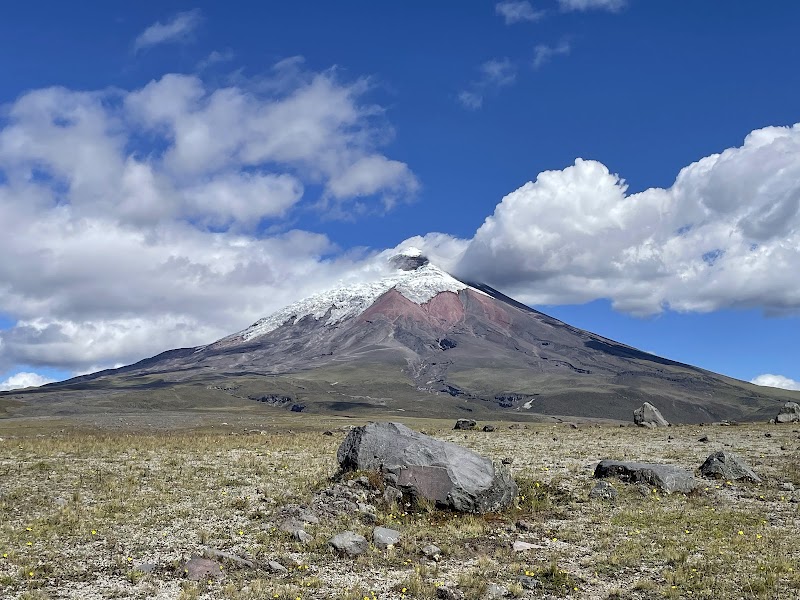
Los Ilinizas Ecological Reserve Adventures
Los Ilinizas Ecological Reserve protects the volcanic twin peaks of Iliniza Norte and Iliniza Sur, offering challenging climbs, diverse Andean ecosystems, and spectacular landscapes for outdoor enthusiasts.
About Los Ilinizas Ecological Reserve

Los Ilinizas Ecological Reserve is located in the Andes of Ecuador, spanning parts of the provinces of Pichincha, Cotopaxi, and Tungurahua. It is centered around the Los Ilinizas volcanic complex, which consists of two prominent summits: Iliniza Norte (5,126 m) and Iliniza Sur (5,263 m). The reserve features a varied geography including snow-capped peaks, páramo grasslands, high Andean forests, and glacial valleys. The ecological reserve protects important páramo ecosystems that support unique flora, such as frailejones and Polylepis forests, and fauna including spectacled bears, Andean condors, and endangered amphibians. The area's volcanic origin and geological formations attract geologists and adventurers alike. Outdoor recreation focuses heavily on mountaineering, with Iliniza Sur considered a significant technical climb involving glacier crossing and crevasse navigation, while Iliniza Norte is a more accessible hike attracting climbers seeking acclimatization at high elevations. The reserve also offers scenic trekking routes and opportunities for wildlife observation. Established in 1996 to conserve this ecologically and geologically valuable area, Los Ilinizas has become a destination for experienced climbers and nature lovers. Visitors appreciate the remote natural setting and panoramic views of surrounding volcanic peaks such as Cotopaxi and Illiniza. Because of the rugged terrain and altitude, visitors are encouraged to prepare thoroughly and respect fragile habitats. The reserve balances preservation with sustainable adventure, enabling visitors to experience high Andean wilderness and volcanic landscapes in Ecuador.
Highlights
Iliniza Sur Summit – Challenging glacier climb and one of Ecuador’s highest peaks
Páramo Ecosystems – Home to unique high-altitude flora like frailejones and Polylepis forests
Spectacled Bear Habitat – An opportunity to spot this endangered Andean species
Remote High Andean Landscapes – Expansive views and solitude away from crowded parks
Notable Natural Features
Iliniza Norte
A 5,126-meter volcanic peak known for its accessible ascent, offering panoramic views and acclimatization opportunities.
Iliniza Sur
The higher peak at 5,263 meters featuring glaciers, technical climbing routes, and a challenging summit experience.
Páramo Grasslands
Alpine tundra ecosystems with unique plant species adapted to high elevations and important for water regulation.
